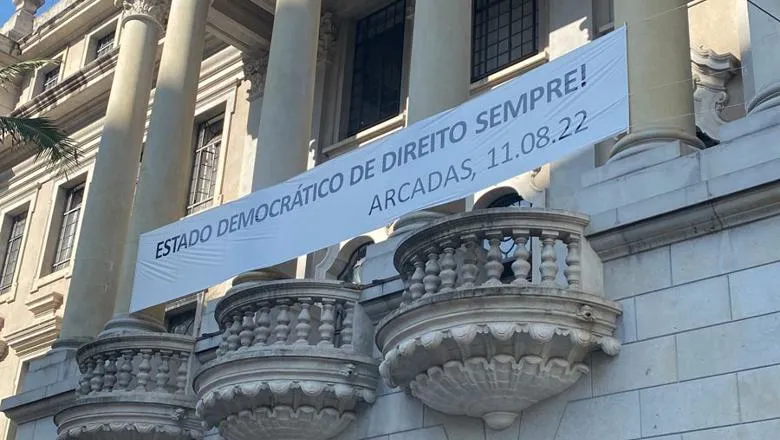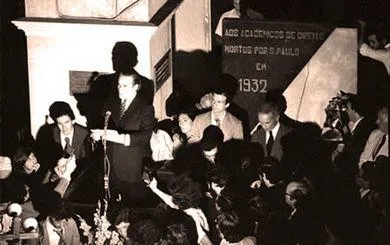Ahead of the upcoming elections in Brazil, a call to all Brazilians to respect Democracy and the Rule of Law

As it is now reasonably well-known around the world, Brazil, the fifth largest Democracy, has experienced a significant deterioration in its democratic and rule of law standing in the past four years. In the Freedom House ranking, Brazil's freedom score has been on decline for 5 years in a row. The situation deteriorated to such a point that some commentators have even warned of the risk of democracy dying in Brazil if the current government remains in power beyond the end of its mandate at the end of 2022. (see Oliver Stuenkel, "Democracy Is Dying in Brazil. To Stop Bolsonaro, the Opposition Must Unite", Foreign Affairs, November 1, 2021). During the last four years, the current president has constantly used his powers to undermine democracy in any way he could. Prominent examples include the appointment of an unprecedented number of military personnel for posts in the federal government, including ministries; the appointment of an attorney general and of two supreme court justices who are widely regarded as allies of the president, as well as a myriad of executive orders gutting accountability institutions through appointments of government-friendly personnel and significant cuts in funding. He has also consistently undermined the press and the Supreme Court through periodical criticism, often making use of fake news.
But arguably the most serious attacks have come in the form of constant criticism of the electoral process which claim, without evidence, that the electronic voting system (the same that elected him for seven legislatures and for the presidency), is unreliable and prone to fraud. He has also suggested that, if he loses, he might not accept the results of the next presidential elections scheduled for October 2022.
As a way of warning the president that Brazilian society will not accept such behaviour, the Letter to Brazilians was written and has now been signed by over 700.000 people in Brazil. It is inspired in another famous letter read in 1977 at the Law School of the University of Sao Paulo during the military dictatorship that lasted from 1964 to 1985.
The Transnational Law Institute, the King's Observatory of Democracy in Latin America and the King's Brazil Institute are offering their support to this initiative and invite anyone else willing to support it to join us.
The letter will be read on August 11, 2022, at 11am Brazil time at the University of Sao Paulo Law School and the English version (see below) will be simultaneously read at the Dickson Poon School of Law, at 3pm UK time, in the Moot Court Room. Link for registration will be available soon.

Letter to Brazilians in defence of the Democratic Rule of Law
In August 1977, amidst the celebrations of the sesquicentennial of the foundation of the Law Schools in Brazil, professor Goffredo da Silva Telles Junior, master of all of us, in the free territory of Largo de São Francisco, read the Letter to Brazilians, in which he denounced the illegitimacy of the then military government and the state of exception in which we lived. It also called for the re-establishment of the rule of law and the convening of a National Constituent Assembly.
The seed planted bore fruit. Brazil overcame the military dictatorship. The National Constituent Assembly rescued the legitimacy of our institutions, reestablishing the democratic rule of law with the prevalence of respect for fundamental rights.
We have the powers of the Republic, the Executive, the Legislative and the Judiciary, all independent, autonomous and committed to respecting and ensuring compliance with the greater covenant, the Federal Constitution.
Under the mantle of the Federal Constitution of 1988, which is about to complete its 34th anniversary, we went through free and periodic elections, in which the political debate on projects for the country has always been democratic, with the final decision being left to popular sovereignty.
Goffredo's lesson is embodied in our Constitution "All power emanates from the people, who exercise it through their elected representatives or directly, under the terms of this Constitution".
Our elections with the electronic counting process have served as an example in the world. We had several alternations of power which respected the results of the polls and led to a republican transition of government. Electronic voting machines, as well as the Electoral Justice, proved to be safe and reliable.
Our democracy has grown and matured, but much remains to be done. We live in a country of profound social inequalities, with deficits in essential public services, such as health, education, housing and public safety. We have a long way to go in developing our economic potential in a sustainable way. The State is inefficient in the face of its numerous challenges. Demands for greater respect and equality of conditions in terms of race, gender and sexual orientation are still far from being fully met.
In the coming days, in the midst of these challenges, we will have the beginning of the electoral campaign to renew the mandates of state and federal legislatures and executives. At this moment, we should have the apex of democracy with the dispute between the various political projects aimed at convincing the electorate of the best proposal for the direction of the country in the coming years.
Instead of a civic celebration, we are going through a moment of immense danger to democratic normality, of risk to the institutions of the Republic and of insinuations of contempt for the results of the elections.
Groundless attacks unaccompanied by evidence question the fairness of the electoral process and the democratic rule of law so hard won by Brazilian society. Threats to other powers and sectors of civil society and the incitement to violence and the breakdown of the constitutional order are intolerable.
We have recently witnessed authoritarian rants that have jeopardized secular American democracy. There, attempts to destabilize democracy and the people's confidence in the fairness of the elections were unsuccessful. Here, they won't be either.
Our civic conscience is much greater than the opponents of democracy imagine. We know how to put aside minor differences in favor of something much bigger, the defense of the democratic order.
Imbued with the civic spirit that underpinned the 1977 Letter to Brazilians and gathered in the same free territory of Largo de São Francisco, regardless of the electoral or partisan preference of each one, we call on Brazilians to be alert in the defense of democracy and respect for the election result.
In today's Brazil there is no more room for authoritarian setbacks. Dictatorship and torture belong to the past. The solution to the immense challenges facing Brazilian society necessarily involves respect for the results of the elections.
In civic vigil against attempts at ruptures, we cry out in unison:
Democratic Rule of Law Always!!!!
The following institutions and persons support the above letter:
The Transnational Law Institute, King's College London
The King's Observatory of Democracy in Latin America (KODLA)
The King's Brazil Institute
If you are Brazilian and have a CPF number (Brazil's tax number), you can sign the letter directly at the University of Sao Paulo Law School here






